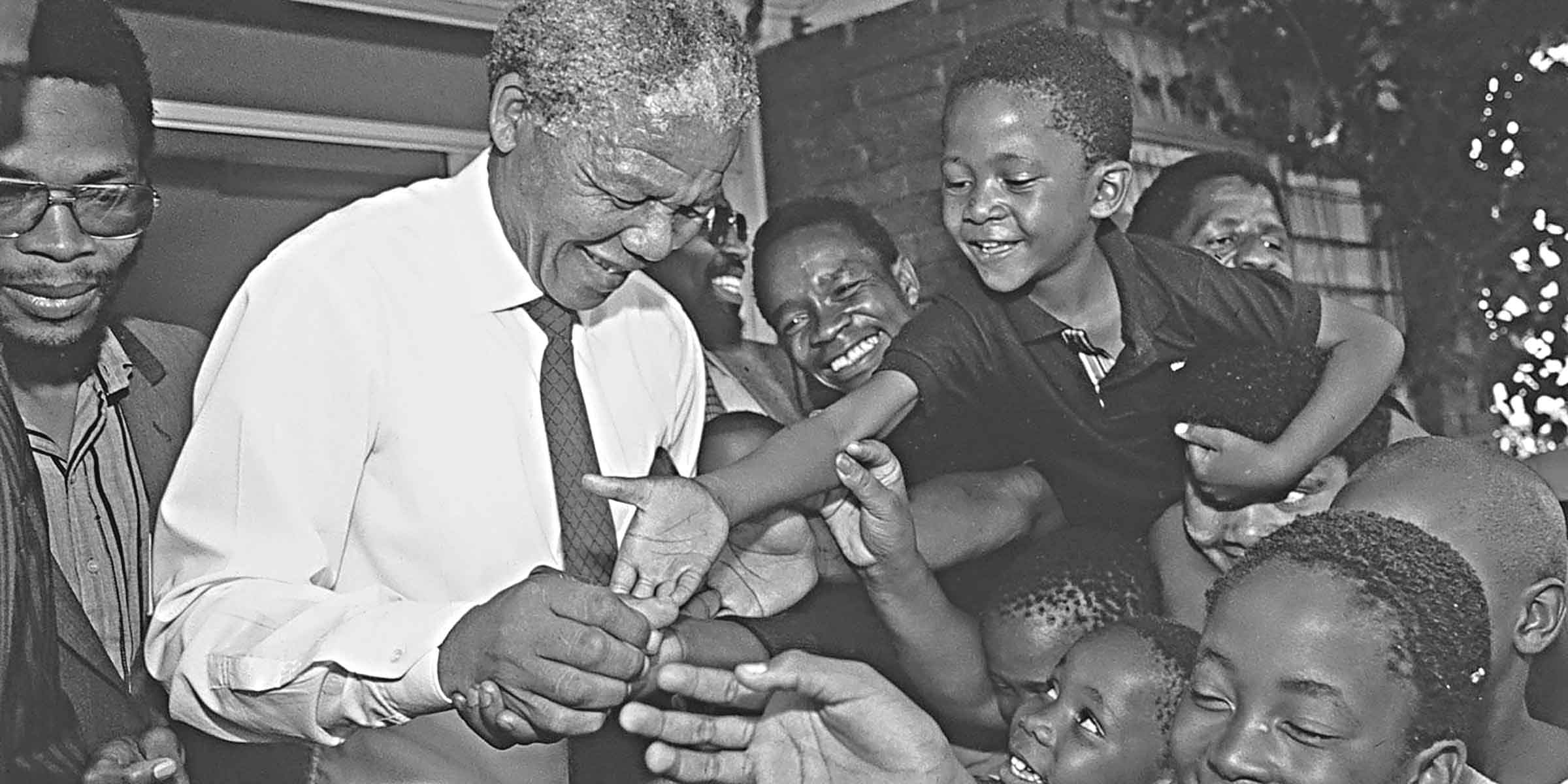
b) The word ‘reconciliation’ in the first paragraph refers to —
i. memorization ii. recall
iii. reuniting iv. change
Answer: iii. reuniting
c) ‘Resolve’ in the first paragraph could be replaced by —
i. dissolve ii. determination
iii. hesitation iv. solution
Answer: ii. determination
d) Mandela spent around years behind the bars.
i. twenty ii. thirty
iii. forty iv. fifty
Answer: ii. thirty
e) The best synonym of ‘chasm’ is —
i. exposition ii. rift
iii. harmony iv. union
Answer: ii. rift
B. Answer the following questions.
a) What, according to text, is apartheid?
b) Mention three great achievements in Mandela’s life.
c) Why did Mandela want to break the manacles of apartheid?
d) What does the expression ‘I have fought it all during my life; I will fight it now, and I will do so until the end of my days’ mean?
e) Do you find any similarity between Mandela and Sheikh Mujibur Rahman? If any, mention.
Answer:
a) According to text apartheid means the racial segregation prevailing in South Africa. It means the domination of the white over the black people of South Africa. Nelson Mandela is famous for breaking the manacles of apartheid from South Africa.
b) Though Mandela had to suffer a lot, his achievements were noteworthy. His first achievement was to break the manacles of apartheid. His second achievement was to become the first black president of South Africa. His third achievement was to win the Nobel Prize.
c) Mandela wanted to break the manacles of apartheid because this vary evil practice was responsible for the racial bigotry in South Africa. The manacles of apartheid confined the black people of South Africa inside the four walls of oppression.
d) This very statement is the expression of Mandela’s firm resolution to fight against racial bigotry. Mandela had an absolute abhorrence towards race discrimination. He fought against it and was ready to fight against till his last breath.
e) I see some similarities between Nelson Mandela and Sheikh Mujibur Rahman who fought for their respective countries. Mandela fought against the white rulers of his country. In the same way, Sheikh Mujibur Rahman fought against the Pakistani rulers. Then both of them were undisputable Presidents in their respective countries. Finally, both of them were famous leaders.
11. Read the following text and answer the questions A and B.
Mandela went on to play a prominent role on the world stage as an advocate of human dignity in the face of challenges ranging from political repression to AIDS. He formally left public life in June 2004 before his 86th birthday, telling his adoring countrymen: ‘Don’t call me. I’ll call you.’ But he remained one of the world’s most revered public figures, combining celebrity sparkle with an unwavering message of freedom, respect and human rights. ‘He is at the epicenter of our time, ours in South Africa, and yours, wherever you are,’ Nadine Gordimer, the South African writer and Nobel Laureate for literature, once remarked. The years Mandela spent behind bars made him the world’s most celebrated political prisoner and a leader of mythic stature for millions of black South Africans and other oppressed people far beyond his country’s borders. Charged with capital offences in the 1963 Rivonia Trial, his statement from the dock was his political testimony.
A. Choose the correct answer from the alternatives.
(a) What could be the closest meaning for ‘mythic stature’ in text?
(i) Legendary figure
(ii) Hulk giant
(iii) Fabulous hero
(iv) Infamous
Answer: (i) Legendary figure
(b) The word ‘revered’ in the text refers to —
(i) well-regarded
(ii) depraved
(iii) tarnished
(iv) venerated
Answer: (i) well-regardedপরবর্তী অংশ আগামী সংখ্যায়